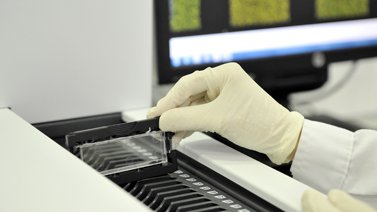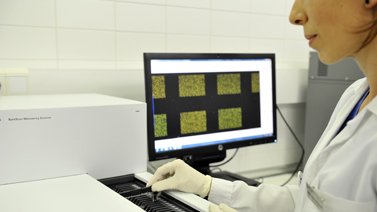PGS/PGT-A/CCS (Comprehensive Chromosomal Screening). Testing the embryo as responsible for sterility
Chromosomal testing of embryos throws light on their condition and the source of previous implantation failures or recurrent miscarriages
It should be kept in mind that in order to successfully bring a pregnancy to full term without Assisted Reproduction or without having received treatment for a reproductive disorder, there are three patients who must remain healthy: the man, the woman and the embryo. It is not a matter of twos but of threes, and we are starting to realize that the third patient is responsible for many infertility problems traditionally labeled as “of unknown causes” or the result of “bad luck”.
We hardly know the embryo. Our assessments of it were too simplistic: they were based on its morphology, that is, the shape it takes on the days when it is cultured, the number of cells it has, the time it takes to split,… In other words, its external appearance.
The search for clues that would make embryo selection more reliable and expand our knowledge about its health has been continuous over the last years.
We knew that chromosomal alterations are responsible for most early miscarriages and failed insemination and IVF (In vitro fertilisation) treatments, but we lacked reliable techniques that would not damage the embryo.
Luckily for both patients and doctors, this situation has changed dramatically: today, comprehensive tests of all chromosomes present in an embryo are a reality.


What advantages does PGS/PGT-A/CCS have for me as a patient?
It allows us to discard those embryos traditionally regarded as “good quality” for their appearance but which, because they were carriers of chromosomal alterations, ended either not implanting or causing pregnancy losses during the first weeks.

THE ADVANTAGES OF COMPREHENSIVE CHROMOSOME SCREENING
Avoids unnecessary thawing
and transfer of abnormal embryos which, based on shape,
may appear to be apt but which, in terms of chromosomes, are not
Suitable embryo selection which takes into account both
morphological and chromosomal criteria
Reduces the risk
of pregnancy loss
Biopsy on day 5,
avoid damage to the internal cell mass
of the embryo
Avoids multiple transfers which can
lead to multiple pregnancies
Greater precision
in el
diagnosis
